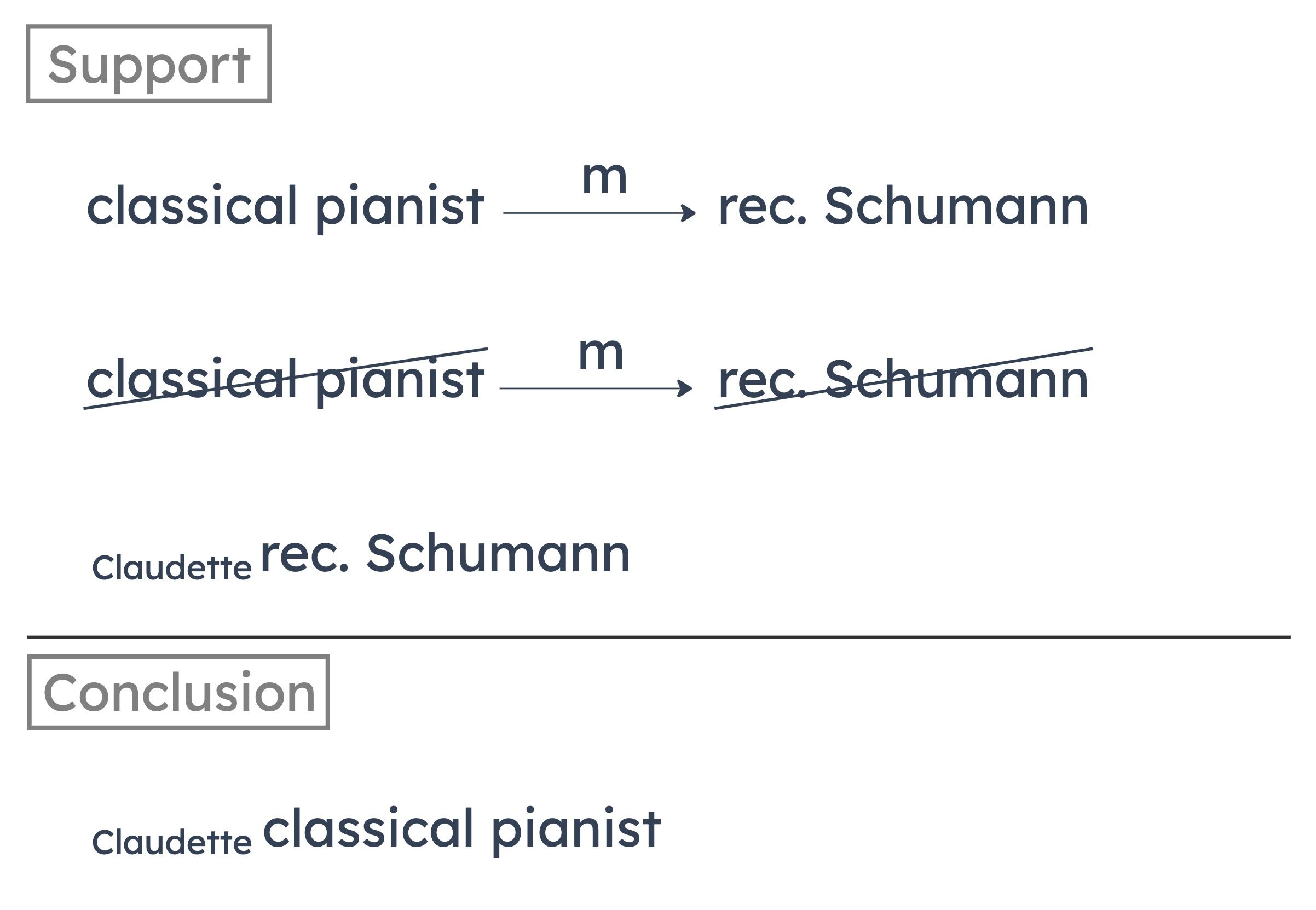LSAT 117 – Section 2 – Question 21
LSAT 117 - Section 2 - Question 21
October 2004You need a full course to see this video. Enroll now and get started in less than a minute.
Target time: 1:16
This is question data from the 7Sage LSAT Scorer. You can score your LSATs, track your results, and analyze your performance with pretty charts and vital statistics - all with a Free Account ← sign up in less than 10 seconds
| Question QuickView |
Type | Tags | Answer Choices |
Curve | Question Difficulty |
Psg/Game/S Difficulty |
Explanation |
|---|---|---|---|---|---|---|---|
| PT117 S2 Q21 |
+LR
| Flaw or descriptive weakening +Flaw Quantifier +Quant | A
2%
156
B
20%
158
C
1%
154
D
1%
155
E
77%
163
|
135 147 160 |
+Medium | 146.765 +SubsectionMedium |
Summarize Argument
The argument claims that Claudette is probably a classical pianist. This is because most classical pianists recognize Schumann's works, and Claudette happens to also recognize them. Further, most people who aren’t classical pianists would not have recognized them.


Identify and Describe Flaw
These two ‘most’ relationships only tell us how likely someone may be to recognize or not recognize Schumann’s works. They say nothing about how likely someone is to be a classical pianist. It’s entirely possible that most people who recognize her works aren’t classical pianists. The argument’s flaw lies in the mistaken assumption that, among everyone in the world who recognizes Schumann's works, most of them are classical pianists. This flaw amounts to the author interpreting a ‘most’ relationship in the wrong direction.
A
ignores the possibility that Claudette is more familiar with the works of other composers of music for piano
This is irrelevant. The argument claims that she’s probably a classical pianist because she recognizes Schumann’s works. This claim is unaffected by how many other works she does or doesn’t recognize.
B
presumes, without providing justification, that people who have not heard of Clara Schumann do not recognize her works
This is irrelevant. Whether these other people recognize Schumann or not has no bearing on whether Claudette is likely to be a classical pianist.
C
presumes, without providing justification, that classical pianists cannot also play other musical instruments
The argument doesn’t presume this, and even if it were to, it wouldn’t matter. Whether classical pianists play other instruments or not is irrelevant to whether Claudette is likely to be one.
D
relies for its plausibility on the vagueness of the term “classical”
The term “classical” is not vague since it consistently refers to a specific kind of pianist.
E
ignores the possibility that the majority of people who recognize many of Clara Schumann’s works are not classical pianists
This describes the fact that while most classical pianists may recognize Schumann’s works, many other kinds of people may recognize them as well. Claudette could easily be one of those other people who recognize the works without being a classical pianist.
Take PrepTest
Review Results
LSAT PrepTest 117 Explanations
Section 1 - Reading Comprehension
- Passage 1 – Passage
- Passage 1 – Questions
- Passage 2 – Passage
- Passage 2 – Questions
- Passage 3 – Passage
- Passage 3 – Questions
- Passage 4 – Passage
- Passage 4 – Questions
Section 2 - Logical Reasoning
- Question 01
- Question 02
- Question 03
- Question 04
- Question 05
- Question 06
- Question 07
- Question 08
- Question 09
- Question 10
- Question 11
- Question 12
- Question 13
- Question 14
- Question 15
- Question 16
- Question 17
- Question 18
- Question 19
- Question 20
- Question 21
- Question 22
- Question 23
- Question 24
- Question 25
Section 3 - Logical Reasoning
- Question 01
- Question 02
- Question 03
- Question 04
- Question 05
- Question 06
- Question 07
- Question 08
- Question 09
- Question 10
- Question 11
- Question 12
- Question 13
- Question 14
- Question 15
- Question 16
- Question 17
- Question 18
- Question 19
- Question 20
- Question 21
- Question 22
- Question 23
- Question 24
- Question 25
Section 4 - Logical Reasoning
- Question 01
- Question 02
- Question 03
- Question 04
- Question 05
- Question 06
- Question 07
- Question 08
- Question 09
- Question 10
- Question 11
- Question 12
- Question 13
- Question 14
- Question 15
- Question 16
- Question 17
- Question 18
- Question 19
- Question 20
- Question 21
- Question 22
- Question 23
- Question 24
- Question 25
- Question 26
Leave a Reply
You must be logged in to post a comment. You can get a free account here.